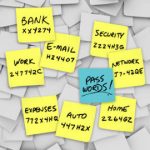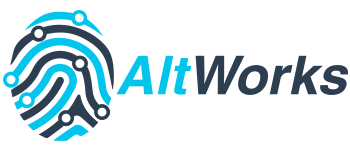Bad habits can be hard to break, and sometimes you’re not even aware of them. Its easy to be complacent, especially if your IT world has never come crashing down around you. But one day it might!
Here are some bite-sized tips to help you develop better habits as a technology user, at home, out and about, or in the office.
Reusing the same password
 We understand the challenges of coming up with new secure passwords, but please, never reuse any password, ever. Each time a password is cracked or discovered, you can almost guarantee it will be tried on all services linked to that person. Social media, email, shopping and banking are all major targets for cyber criminals.
We understand the challenges of coming up with new secure passwords, but please, never reuse any password, ever. Each time a password is cracked or discovered, you can almost guarantee it will be tried on all services linked to that person. Social media, email, shopping and banking are all major targets for cyber criminals.
It really doesn’t take much to send the domino’s falling. Consider using a reputable password manager to help you remember all your unique passwords.
Ignoring software updates
Update notifications can be annoying and seem to pop up at the most inconvenient times. Yes you can click that X or select postpone almost indefinitely, but they’re something you need to act on.
Keeping anti-virus/malware programs updated and current is critical to making sure your device is protected against the 100’s of millions of threats out there. Software makers also need to act swiftly when security flaw is found in their product.
Taking a little time to make sure everything is up-to-date, or better yet, make your updates run automatically.
Not using 2FA when available
Two Factor Authentication (2FA) is quite common these days, but many people still don’t use this very effective security feature when it’s available.
For those not up to speed; 2FA is an extra layer of security for access to online accounts. It incorporates something you know (username/password) with something you have (mobile device). It usually takes the form of a unique code sent via SMS, or from an app on your phone. You then enter this code after you successfully use your username/password.
Extra security features are available for large array of online services, especially the big players like Facebook, Twitter Google (Gmail, Google Docs, Google Drive, etc.) and Instagram. It’s even an option for MyGov. Take advantage of it!
Sharing passwords
 A heap of organisations have tasks that can only be done on one person’s login and/or machine, and some days, they won’t be there. Someone else needs to do it right? This is usually the scenario that leads people to writing down their (usually very simple) passwords on a scrap of paper or a post-it-note. Handing it to a colleague, or worse, permanently sticking it to the monitor or computer’s case.
A heap of organisations have tasks that can only be done on one person’s login and/or machine, and some days, they won’t be there. Someone else needs to do it right? This is usually the scenario that leads people to writing down their (usually very simple) passwords on a scrap of paper or a post-it-note. Handing it to a colleague, or worse, permanently sticking it to the monitor or computer’s case.
You might feel you have a great trustworthy team, but visitors, contractors or other disgruntled employees may not be.
Most of the time all that’s needed to avoid such a bad security practice is to work who is responsible to coverage of this role, and add another account with sufficient access, or increase the access if an account already exists.
Plan ahead and don’t risk unauthorised access to your sensitive systems and data.
Assuming public WiFi is safe
Everyone loves free WiFi, but how often do you ask yourself how safe is this? Public WiFi networks rarely have sufficient protection for their users, and can really leave you exposed to hackers and snoopers in a variety of ways.
Make sure the hotspot you are connecting to is named exactly as it is supposed to be, and disable auto-connect to ones that you have used previously. Also, don’t log in to any sensitive accounts, unless you’re using a decent VPN service(Virtual Private Network).
VPN services are incredibly useful, very affordable and increasingly easy to setup and use.

